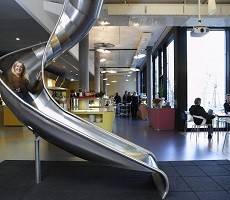May 20, 2016
Quarter of UK workers would choose home working over pay rise 0
 We reported earlier this week that flexible working has gone mainstream, with over a third of organisations now offering some kind of flexible working arrangement. The question is whether these flexible workers are more productive, as some employers persist in perceiving a flexible working request as a means of ‘shirking from home.’ Now new research to mark National work from home day, shows that 48 percent of workers are happier when they can work from home and nearly a third (32 percent) of British workers ‘feel more productive’ when they do so. The study by the Institute of Inertia, a partnership between comparethemarket.com and the University of Sheffield, found that nearly a quarter (24 percent or 7.5 million) of British workers would rather work from home one day a week than receive a pay rise, while seven million admit they suffer from ‘procrastination or inertia issues’ when working in an office.
We reported earlier this week that flexible working has gone mainstream, with over a third of organisations now offering some kind of flexible working arrangement. The question is whether these flexible workers are more productive, as some employers persist in perceiving a flexible working request as a means of ‘shirking from home.’ Now new research to mark National work from home day, shows that 48 percent of workers are happier when they can work from home and nearly a third (32 percent) of British workers ‘feel more productive’ when they do so. The study by the Institute of Inertia, a partnership between comparethemarket.com and the University of Sheffield, found that nearly a quarter (24 percent or 7.5 million) of British workers would rather work from home one day a week than receive a pay rise, while seven million admit they suffer from ‘procrastination or inertia issues’ when working in an office.




































May 18, 2016
Younger working mothers bear the brunt of maternity discrimination 0
by Sara Bean • Comment, Flexible working, Legal news, News, Workplace
(more…)